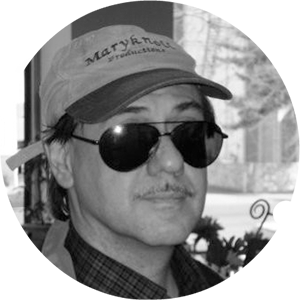Therapy Suite: A Narrative Suite in Three Movements
I – Psych West (Andante)
Maybe it was the rain, I thought, as I sat drenched in the front seat of the car—it had come down in a torrent before I’d reached the lot.
It had been raining that night, too, thirty years ago.
Or maybe it was the smoke, the cluster of people smoking under the overhang—I’d caught a strong whiff of the smoke as I’d left the building. He’d always smelled of smoke, always veiled in it.
Michael had sat across from me in that overstuffed chair in the dayroom of Psych West, the inpatient men’s ward. Over a month and the doctors had yet to come close to re-balancing his meds.
“Over forty, now, and the metabolism changes–the meds don’t work the same….” They had told him with the casual indifference of men who dealt daily with pharmaceuticals.
Now, sitting and shivering in the front seat, waiting for the car to warm up and warm me, I recalled that night—the on-and-off rain, the streets slick with fallen leaves.
Michael had sat, cigarette dangling from fingers perpetually stained yellow with the nicotine. I’d been visiting for over thirty minutes, and as usual, the conversation had gone nowhere.
I was sitting there, feeling foolish, so that I wouldn’t be somewhere else on a Friday night feeling guilty, and he could see it in the pointless talk of books and exam preparation. He was out of the loop on all that, his dissertation on hold, indefinitely, again—the great questions of the Renaissance still unanswered by his incisive if perpetually distracted mind.
Finally, he spoke up again, in his low, slow southwest drawl, trying to bring some closure to the visit. “You know, you really don’t have to be here—you’re uncomfortable, and hell, I’d be, too. But fighting your own guilt is your problem, and sitting here for an hour a week doesn’t help me either. I’m grateful, make no mistake, but it doesn’t work, so give it a rest, OK? Take a few weeks off at least.”
He’d distinguished himself as a student for cutting to the heart of a reading, and he could do that with people, too. Still, it was an effort to nod my assent, mumble my goodnight, and leave.
The next week they shipped him to the state hospital one hundred miles west. I didn’t see him again–he got lost in the distances, so I just don’t know….
But that night, I’d gotten soaked walking back to the car, so I’d ducked into an empty classroom building. I’d huddled myself under the air dryer in the first-floor men’s room, shivering and trying futilely to get dry and warm.
When the janitor entered and saw me, fetal beneath the dryer, he didn’t say a thing. He just looked and left.
I could tell he thought I was just plain crazy.
II – Shelter (Adagio)
The rain had eased up some, the wind, too. He could hear the difference. It was no longer pelting the ground angrily but had become soft and steady.
He could tell it would keep up that way for hours, and the sound was comforting, reminding him of something far away, maybe something from his childhood, but he was unsure.
He sat there, still wet but no longer shivering. That old piece of tarp had been a godsend. He shook his head slightly, thinking how lucky he’d been. The rain had come faster than he’d thought it could, and he’d been pretty much soaked in the first few minutes. On top of that he’d been caught out on a street and in an area he did not know that well, one where there weren’t many places to hide.
He’d just been running forward, looking for anything that could help, when he saw the overpass, maybe for an off-ramp from the highway. Once underneath, he’d realized that the open ground under the highway went back over a hundred feet from the street it bridged, up a gentle slope.
He’d walked up there, shivering and clutching his coat around himself. That’s when he’d really hit the jackpot—a vacated storage site, probably for a highway repair crew, with wooden pallets leaning up against one of the bridge supports. He’d hung his soaked coat and pants on these to dry, changing to his spare pants from the backpack. His sweatshirt was still OK.
Even better, he’d found that old plastic tarp rolled up beside the flats. Torn as it was, it still must’ve measured fifty square feet. He’d taken off his shoes and socks to dry, wiping rain off his hair and off his feet with that rag from his coat pocket. Then, he’d just laid out the tarp, sat down on it, pulled one edge over his head like a hood, and wrapped the rest around like a blanket.
Now he sat there in the dark, up against the other bridge support, looking down at the street he’d come up—no one could see or bother him. He realized that he never could have made it even to the two closest shelters tonight, but somehow, this seemed better—private, a real luxury.
He pulled the tarp closer around himself, listening to the reassuring sound of steady rain. It was cool and quiet, and it made him feel quiet inside, like a child being held. Somewhere, deep in his mind, he sensed a memory moving up through him, but it never reached the surface, and he didn’t expect it to.
He could remember himself and his life for about three months back, with all of that in this city—on the streets, or in shelters on the worst nights. But his name, his own history, all of what people call a life—all that was still missing.
“It doesn’t matter,” he thought, “at least, not tonight.”
III – Noise (Allegro Furioso)
“Goddamned cat,” he said to himself in the car, stuck in traffic.
His head was still pounding—the painkillers hadn’t helped.
“What’s holding this up?” he spoke again. “And when are those damn pills gonna start working?”
He’d used over-the-counter ones. No prescription pills, not today—he’d wanted a clear head.
Everything had been ready, and he would have had just enough time to clean it—the parts laid neatly on the kitchen table, like a surgeon’s tools before an operation. It hadn’t really needed cleaning, but he’d wanted it special for today.
Then the cat had gotten spooked and jumped on the table, and parts scattered across the floor, small pieces bouncing under cabinets. He’d gone under the table after the cat when it had grabbed that cotter pin, and that’s when he’d whacked his head, really hard. That had thrown off everything.
No way to reassemble it then, and his headache had made it too hard to concentrate.
“It’s really Sheila’s fault—leaving the cat with me,” he thought out loud. “My idiot sister has to hook up with her ex again, so I’ve gotta watch the cat. Fat chance they’ll get back together.”
He thought about when Julie had left him two years ago, taking both kids. She’d gone back to Ohio to be with her folks, saying that she couldn’t take his moods.
“Bitch said I scared her, but I could’ve given her something to be scared of. Better with them gone—even the goddamned kids were just a couple a sacks of shit and noise.”
He looked over at the camera bag on the passenger seat, reassured that it looked innocent enough, and it was a lot lighter than the duffle he’d have needed for the AR-15.
“I can make this work with just what I have,” he said, reaching out to touch the bag.
He thought about the ease with which he could handle the Glock and the .357.
“Maybe it’s better this way, smoother and cleaner,” he thought. “Besides, I can still make a pretty big noise with these.”
Then he remembered that he’d left the extra clips and shells in the duffle.
“Goddamnit!” he shouted, pounding the steering wheel.
A horn honked.
“What’s holding this up?”
He angrily opened the door and stood on the floorboard, rising up, leaning on the open door and using one hand on the car’s roof to balance himself.
Up ahead, he could see the accident, with two police cruisers and an ambulance. Their flashing lights hurt his eyes, making his head throb even more painfully.
“Goddamned lousy pills,” he said through clenched teeth.
He went back in and grabbed the bag, unzipping it as he slung it over his shoulder. Then he left the car and started walking forward.
“OK,” he thought, “might as well be now….”
Somewhere behind him, a car door slammed.
He was walking slowly and deliberately.
“… I can still make some real noise.”
*A narrative suite, like a musical suite, is a series of brief movements, each with its own action and pace, but all related by some common thematic and tonal elements.
Recommended
The Monstera
The Wild Women of Brigantine
The Salamander






